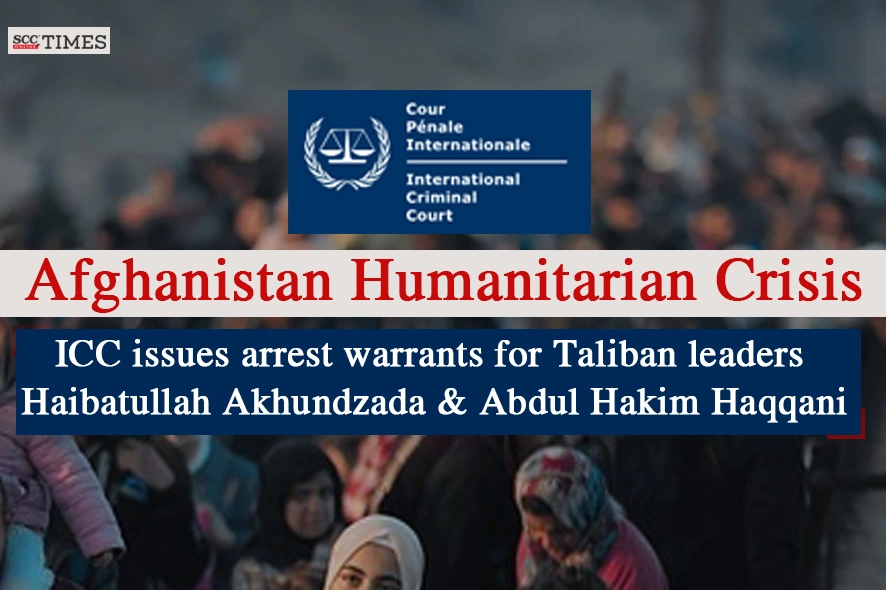International Criminal Court (ICC): On 8-7-2025, in the context of the Situation of Afghanistan, the Pre-Trial Chamber II of the ICC issued arrest warrants for Haibatullah Akhundzada, Supreme Leader of the Taliban, and Abdul Hakim Haqqani, Chief Justice of the Taliban, who have exercised de facto authority in Afghanistan at least from 15-8-2021. The Pre-Trial Chamber found reasonable grounds to believe that the Taliban leaders in question, have committed crimes against humanity under Article 7(1)(h) of the Rome Statute, against girls, women and other persons non-conforming with Taliban’s policy on gender, gender identity or expression; and on political grounds against persons perceived as “allies of girls and women”. It was stated that these crimes have been committed on the territory of Afghanistan since the Taliban seized power on 15-8-2021 and have continued until at least 20-1-2025.
The prosecutor’s office on 23-1-2025, had filed applications for warrants of arrest before the Pre-Trial Chamber II. It had been alleged that Haibatullah Akhundzada and Abdul Hakim Haqqani were criminally responsible for persecuting Afghan girls and women. It was further alleged that the Talibani persecution entailed severe deprivations of victims’ fundamental rights, contrary to international law, including the right to physical integrity and autonomy, to free movement and free expression, to education, to private and family life, and to free assembly1.
While considering the afore-stated applications and previous investigations conducted, the Chamber noted that the Taliban have implemented a governmental policy that resulted in severe violations of fundamental rights and freedoms of the civilian population of Afghanistan, in connection with conducts of murder, imprisonment, torture, rape and enforced disappearance. While the Taliban have imposed certain rules and prohibitions on the population, they have specifically targeted girls and women by reason of their gender, depriving them of fundamental rights and freedoms. The Taliban through decrees and edicts, severely deprived girls and women of the rights to education, privacy and family life and the freedoms of movement, expression, thought, conscience and religion. In addition, other persons were targeted because certain expressions of sexuality and/or gender identity were regarded as inconsistent with the Taliban’s policy on gender.
Considering the object of Article 7(1)(h) of the Rome Statute, the Chamber stated that protection of victims especially women and girls who are often disproportionately affected by gender-based persecution, is central to the provision’s purpose.
The Chamber decided that the warrants will remain under seal at this stage, to protect victims and witnesses and safeguard the proceedings. Nevertheless, it was stated public awareness of the warrants may contribute to the prevention of the further commission of these crimes. Accordingly, the Chamber found that it is in the interests of justice to publicly disclose the existence of these warrants.
Source: ICC Press Release
1. https://www.icc-cpi.int/news/statement-icc-prosecutor-karim-aa-khan-kc-applications-arrest-warrants-situation-afghanistan


